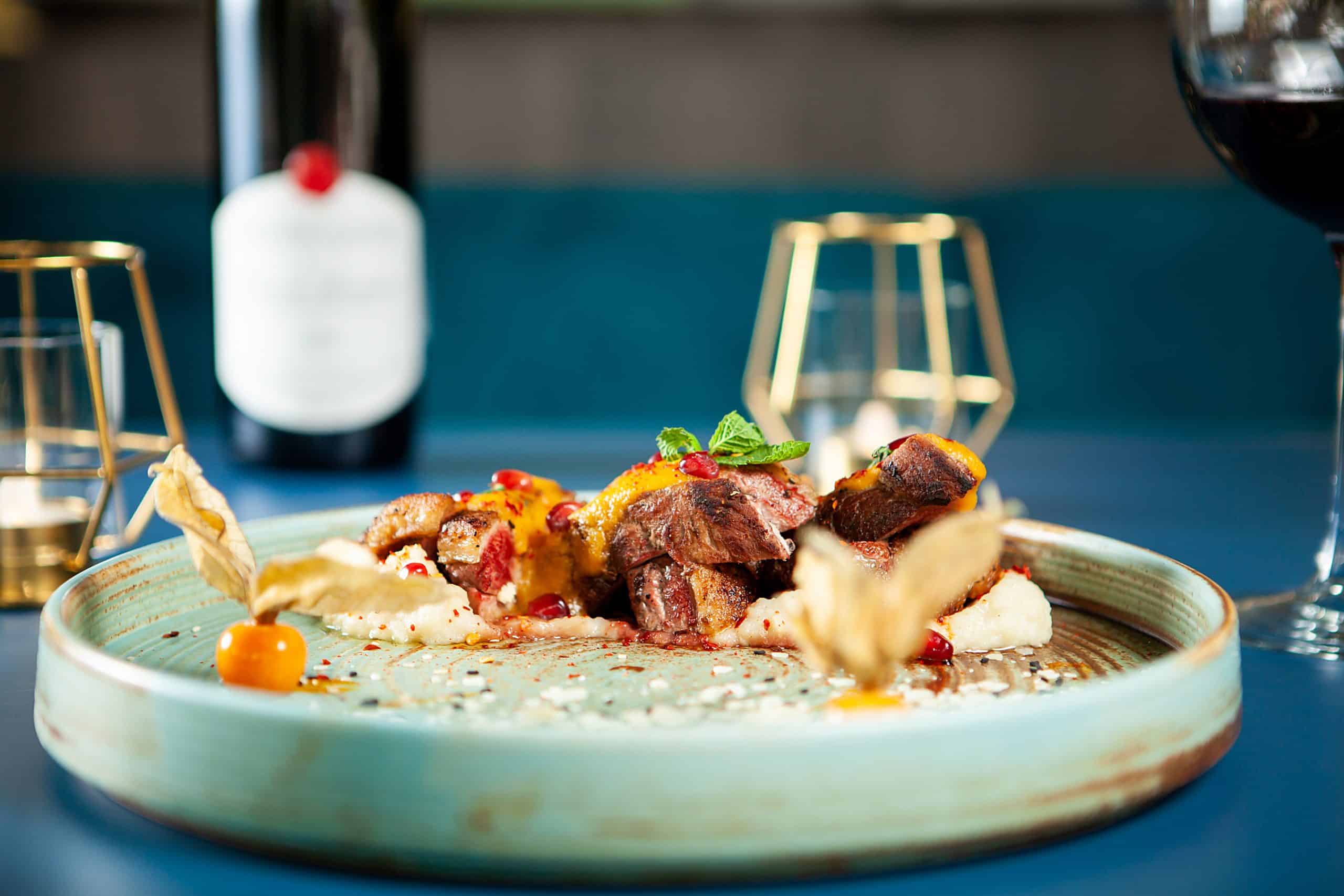Foie gras, a luxury product and culinary symbol of France, is often served during festive occasions, especially at Christmas. It is a rich, buttery delicacy made from the fattened liver of a duck or goose. And when one talks about the best gourmet foie gras, the name Fauchon inevitably comes up. Synonymous with French gastronomy since 1886, Fauchon is renowned for its foie gras terrines, a divine combination of velvety foie gras layered in a loaf shape.
This article will guide you on how to make a gourmet foie gras terrine at home, paired with a sweet fig compote. We will provide a comprehensive list of the steps and ingredients you will need. Infused with the flavor of sweet figs and a hint of pepper, this dish will add a touch of luxury to your festive menu.
Sujet a lire : What’s the Key to a Gourmet Smoked Haddock Chowder with Crispy Leeks?
Choosing the Best Foie Gras
The first step in making a gourmet foie gras terrine is choosing the right foie gras. The quality of the foie gras you choose will significantly impact the end result. A high-quality foie gras should be firm and have a smooth texture, while the color should range from pale pink to light beige.
In France, foie gras is classified into three categories: ‘Foie Gras Entier’, ‘Foie Gras’ and ‘Bloc de Foie Gras’. ‘Foie Gras Entier’ refers to whole foie gras from a duck or a goose. It is the highest quality and the best choice for making a terrine.
Lire également : What Techniques Can Perfect a Gourmet Duck Confit with a Tart Cherry Sauce?
When buying foie gras, it’s crucial to check the list of ingredients. Authentic foie gras should contain nothing more than liver, salt, pepper, and an alcohol such as Armagnac or Cognac. Avoid products with additives or preservatives, as they can compromise the flavor and texture of the foie gras.
The Preparation of Foie Gras
Before starting the actual cooking process, the foie gras will need to be prepared. This involves deveining the liver, a critical step to ensure a smooth and creamy terrine. Although it might be a tedious task, it is necessary for achieving the best texture.
After deveining, the foie gras should be marinated to enhance its flavors. This typically involves soaking the foie gras in a mixture of salt, pepper, and alcohol. For this recipe, we will add a layer of complexity with a splash of sweet Sauternes wine. The wine’s honeyed notes will complement the rich flavor of the foie gras perfectly.
Crafting the Foie Gras Terrine
Making a foie gras terrine involves layering slices of raw, marinated foie gras in a terrine mold. The mold is then cooked in a water bath, a method known as bain-marie, to ensure gentle and uniform cooking.
After cooking, the terrine needs to rest and cool completely before it is ready to serve. This step allows the flavors to meld together and the terrine to set, making it easier to slice. While this process requires some patience, the result is a beautifully layered terrine with a velvety, melt-in-your-mouth texture.
Creating the Fig Compote
While the foie gras terrine is indeed a star on its own, pairing it with a sweet fig compote will elevate your dish to new heights. The sweetness of the figs contrasts beautifully with the savory richness of the foie gras, creating a gastronomic symphony of flavors.
Making a fig compote is relatively straightforward. It involves simmering fresh or dried figs with sugar, water, and a selection of spices until they break down into a thick, jam-like consistency. To add a little twist, you can also include a splash of balsamic vinegar for an extra tang.
Presenting and Serving Your Gourmet Dish
Presentation is key when serving a luxurious dish like a foie gras terrine. Carefully unmold the terrine and slice it with a warm knife to achieve clean, smooth cuts. Arrange the slices on a platter, serve with a generous dollop of fig compote on the side, and garnish with fresh greens for a pop of color.
To fully appreciate the flavors of the foie gras terrine, it should be served slightly chilled. This allows the richness of the foie gras to shine without being overwhelming. Enjoy your gourmet foie gras terrine with crusty bread, a glass of sweet wine, and savor the exquisite culinary experience you’ve crafted. Remember, the best way to enjoy such a dish is to take your time, much like the process of making it. It’s not just food; it’s a celebration of the art of French cooking.
Exploring Foie Gras Recipes with Seasonal Sides
France is often considered the culinary capital of the world, with foie gras being one of its most renowned dishes. Part of the beauty of foie gras is its versatility. While a foie gras terrine is indeed a classic, there are many other ways to enjoy this decadent ingredient.
For instance, you can try making a foie gras torchon, a traditional French preparation where the foie gras is tightly wrapped in a cloth (‘torchon’ in French) and poached, creating a smooth, cylindrical shape. This method requires a bit more work, but the result is a velvety, melt-in-your-mouth delight that is worth the effort.
Another option is cooking with foie gras as a flavorful addition to other dishes. For example, you can sear slices of foie gras and serve it atop a perfectly cooked steak for a decadent surf-and-turf. Or, consider making a creamy foie gras pasta sauce to elevate a simple spaghetti dish.
But let’s not forget the importance of seasonal sides to complement your foie gras dish. If fig compote isn’t to your liking, consider pairing your foie gras with lightly toasted brioche and a tart apple or cranberry compote during the winter. In the summer, fresh berries or a peach chutney could provide a delightful contrast.
Whether you’re preparing foie gras for Christmas, a special occasion, or simply for the sheer joy of indulging, remember to consider the season and what fresh, flavorful sides are available to complement your dish.
Pairing Foie Gras with Wine
When savoring a luxury dish like foie gras, it’s essential to pair it with the right wine to enhance your culinary experience. Traditionally, foie gras is served with sweet wines that have enough acidity to cut through the richness of the dish.
For those who prefer white wine, a classic pairing would be a Sauternes from the Bordeaux region of France. This wine’s sweet, fruity notes beautifully complement the rich, buttery flavors of the foie gras. For a different but equally delightful pairing, you could also consider a late harvest Gewürztraminer. Its aromatic sweetness and spicy notes are an excellent foil for foie gras.
If you’re a red wine lover, go for a lightly chilled Pinot Noir. Its bright acidity and soft tannins can provide a refreshing counterpoint to the creaminess of the foie gras.
Always remember: the goal of wine pairing is to create a balance that allows both the food and the wine to shine. So, feel free to experiment and find a combination that delights your palate.
Conclusion
Preparing and serving a gourmet foie gras terrine, whether from duck or goose foie gras, is an exercise in patience and precision. It’s a culinary adventure that takes you to the heart of French gastronomy, where every detail counts, from the quality of the foie gras to the choice of wine.
With the right preparation and pairing, a foie gras terrine can transform a regular meal into a memorable dining experience. Whether you serve it during a festive Christmas dinner or a special occasion, you’re sure to impress your guests with this delicious demonstration of French culinary art.
So, roll up your sleeves and venture into the exciting world of foie gras recipes. Remember, the journey is just as important as the destination. The time and effort you put into creating your foie gras dish will be reflected in every delightful, flavorful bite. Bon Appetit!






